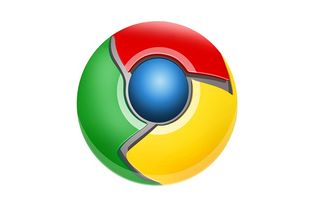Dell confirms talks with Google over Chrome OS netbooks
Its name may only have been mentioned in the same sentence as Google's cloud-based OS recently, but Dell is rapidly moving right to the head of the Chrome hardware queue.

Leading PC maker Dell has suggested it is looking into develop a line of laptops featuring Google's Chrome operating system.
In an interview with Reuters, Dell's president for greater China and South Asia Amit Midha said Dell was interested in all emerging platforms, and while he stopped short of confirming anything concrete, he did confirm that talks between the two companies were ongoing.
Explaining Dell's relationship with Google, Midha commented: "We have to have a point of view on the industry and technology direction two years, three years down the road, so we continuously work with Google on this."
"There are going to be unique innovations coming up in the marketplace in two, three years, with a new form of computing," Midha added. "We want to be on that forefront. With Chrome or Android or anything like that we want to be one of the leaders."
While no formal announcement was forthcoming, Midha's comments certainly confirm that Dell and Google are moving forward on product development on some level. And significantly, they come just days after Dell's name was spotted alongside Acer and HP in a list of hardware support files within the latest Chrome build, suggesting plans were already quite far advanced.
Google has thus far been fairly quiet on Chrome hardware specifics, saying only that the first Chrome devices should appear towards the end of the year, and that at some point Google would release own-brand devices made by a third party for the consumer and enterprise markets, much like the HTC-made Google Nexus One smartphone.
So far Acer has appeared the furthest along in bringing a Chrome-based computer to market and was widely tipped to do so at the recent Computex show in Taipei but the latest developments suggest that Dell might be a lot closer than most of us thought.
Get the ITPro. daily newsletter
Receive our latest news, industry updates, featured resources and more. Sign up today to receive our FREE report on AI cyber crime & security - newly updated for 2024.
Chrome OS is a fully web-based operating system designed for low-power mobile computing platforms such as netbooks and tablets.
It is built around the foundations of the existing Chrome web browser, and as such, all applications are cloud-based, such as the Google Docs office suite. Communication with peripherals looks set to be covered by the likes of Google's Cloud Print project, which replaces the need for printer drivers to be installed on the local hardware.




